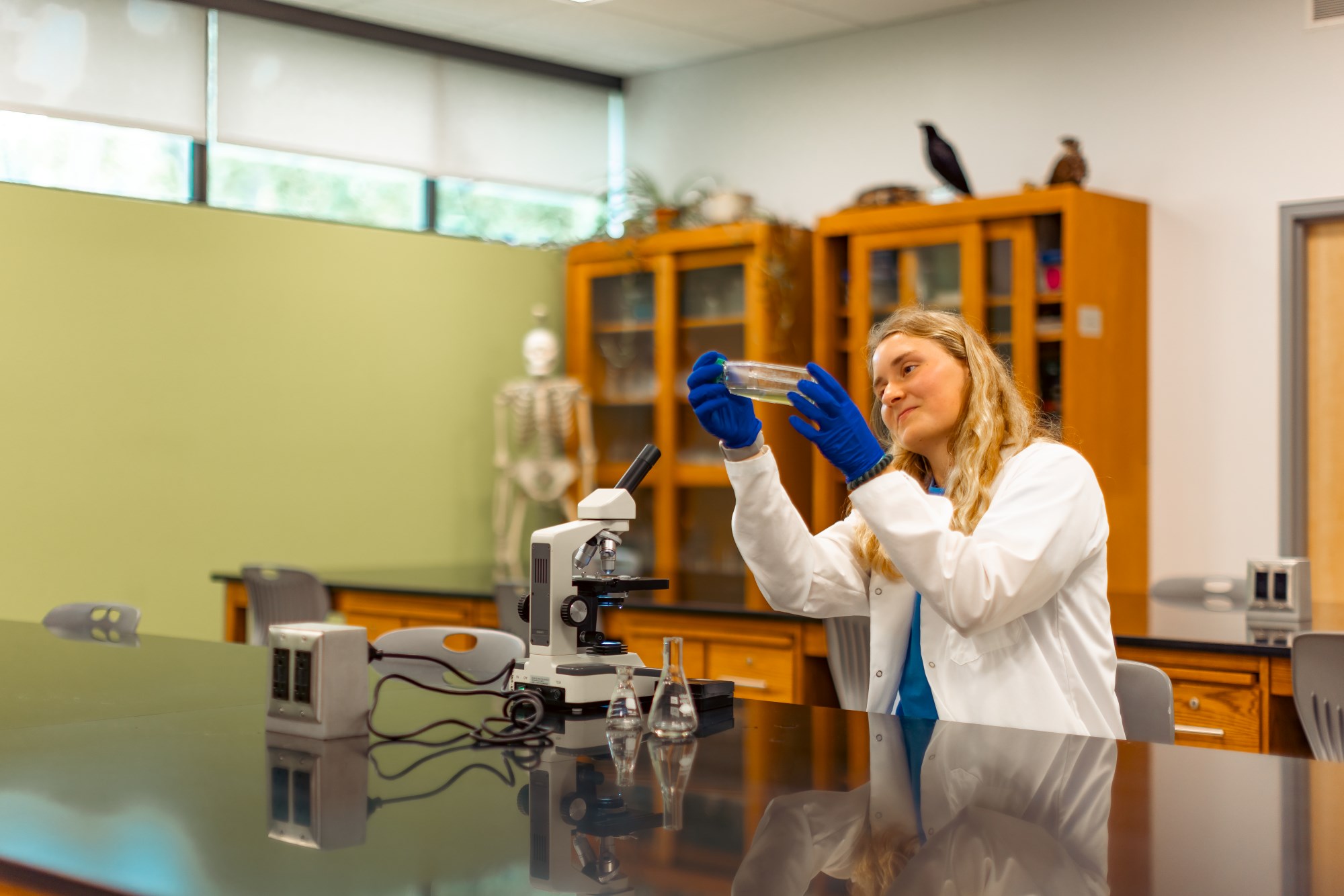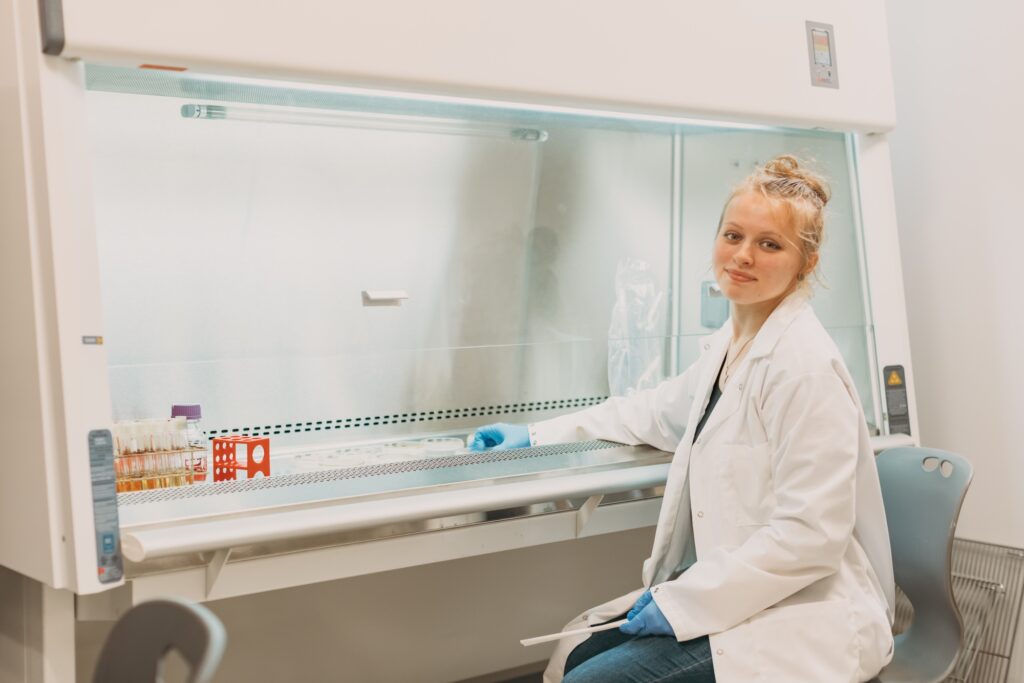What’s the Difference?
When you’re considering a health science degree and a biology degree, the main difference is that health science is crafted specifically for students wanting to go into medical school. However, according to Dr. Rick Roberts, Grace’s pre-health professions coordinator and associate professor of biology, “Pretty much any job you can get with a biology degree, you will be able to get with a health science degree.”
Grace’s health science program is streamlined to help you build up your graduate school application. For example, you’ll have time to pursue a minor outside of health science to diversify your application and make you stand out from other students. In this blog, Roberts provides tips for graduate school success and other advice for those pursuing a health science degree.
At Grace, we also regularly survey graduate school qualifications to ensure we’re equipping our students to move forward in their education. With a health science degree, you’ll be specifically prepared for healthcare with tailored courses that meet graduate medical education requirements. As you move into your higher education, we will support you, and 90% of Grace’s health science graduates are accepted to graduate programs.
Compared to health science, biology is considered a broader major with a wider spectrum of classes. Since biology may not have all the prerequisites you need to qualify for medical school, it is recommended that you set your career goals early and check your class schedules. For example, Grace’s biology major requires only one physics class, whereas two physics courses are required for medical or dental school. If you are a biology major planning to attend medical school, discussing specific degree requirements with your academic advisor is important for meeting the necessary prerequisites.
For those questioning whether health science or biology is best for them, Grace’s first-year classes for a health science degree are designed to overlap with those for biology and environmental biology degrees. This allows you to shift from health science to biology (or vice versa) more smoothly if you discover your degree isn’t a good fit.
“This gives students the chance to explore, learn, and see how they’re doing in classes to be able to make the best choice for their degree and concentration,” says Roberts. “We’ve certainly had students switch from one concentration to another, and this can be done even without transfer credits in three years.”
Faith Integration
Most importantly, at Grace College, we integrate our faith in Christ into all our programs. Our health science degree and our biology degree both dive into God’s complex Creation, whether they are observing His fingerprints while studying the human body in chemical interactions. Every class points to God as the Creator and our responsibility to steward His creation.
“We not only see creation as reflecting God, but we also take a step further and ask, ‘How does that impact our decisions now and down the road in a healthcare career?’” says Roberts.
In the end, whether you choose to pursue a degree in health science or biology, you’ll develop a deeper understanding of God’s intricate design in all living things. Both programs equip you with the scientific and analytical skills to thrive in your chosen field, with health science particularly crafted for medical school. Whether you feel called to healthcare or to explore God’s natural wonders through research, Grace is here to guide you through your degree. Explore our health science and biology programs!





